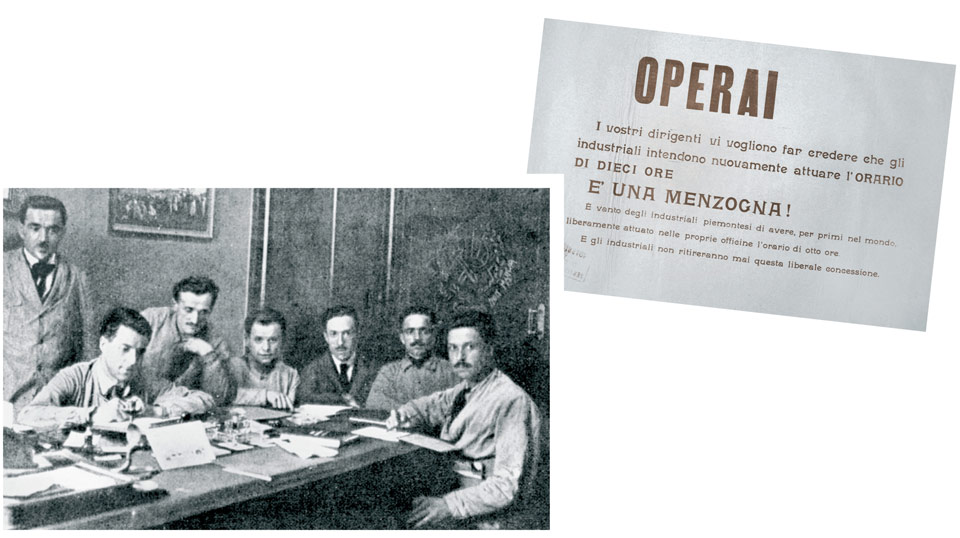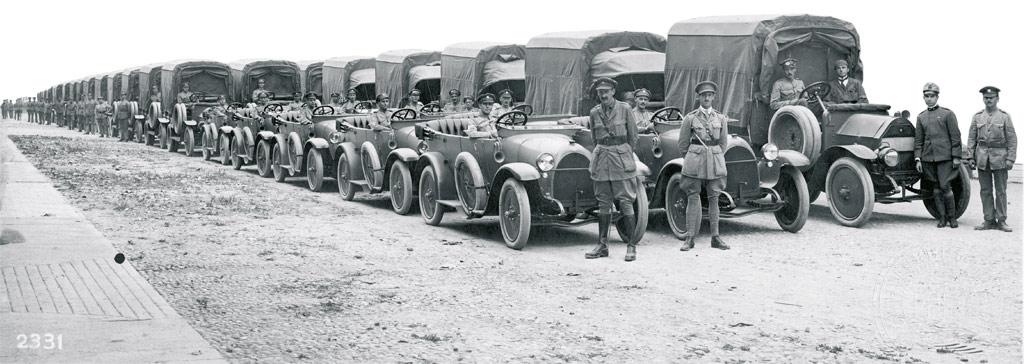Until the interests of Germany merge with those of France, England, etc., at every step of its historical development, the international pact which binds the nations together will turn into a Procrustean bed, forcing all to conform to its one-size-fitsall standard; against this torture, the nations will naturally be driven to react, either by regularly and periodically changing the international pact, or by breaking it.
Giovanni Agnelli e Attilio Cabiati,
Federazione europea o Lega delle Nazioni?
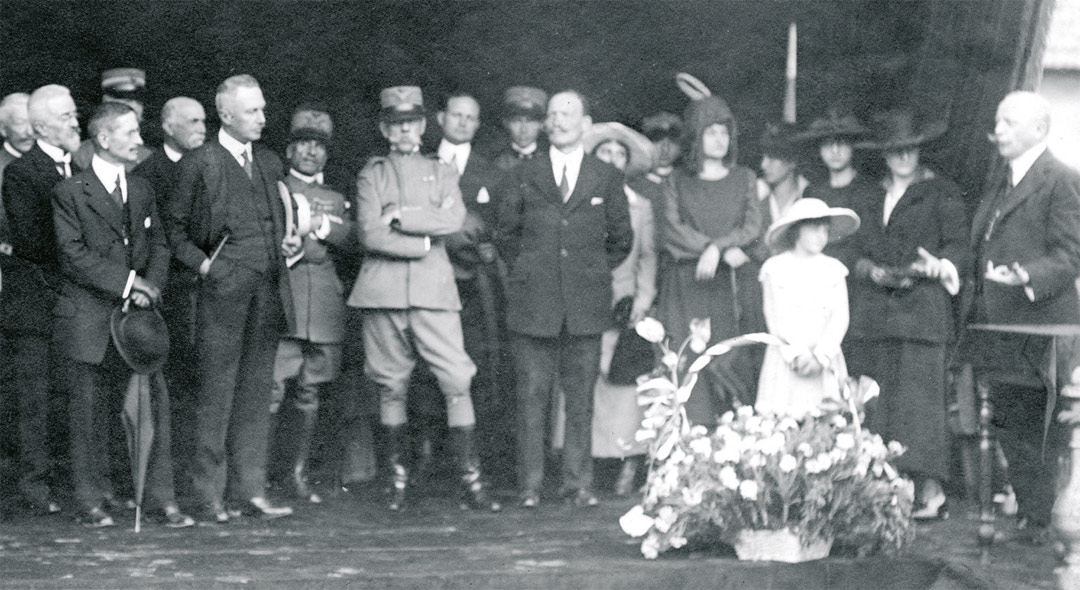
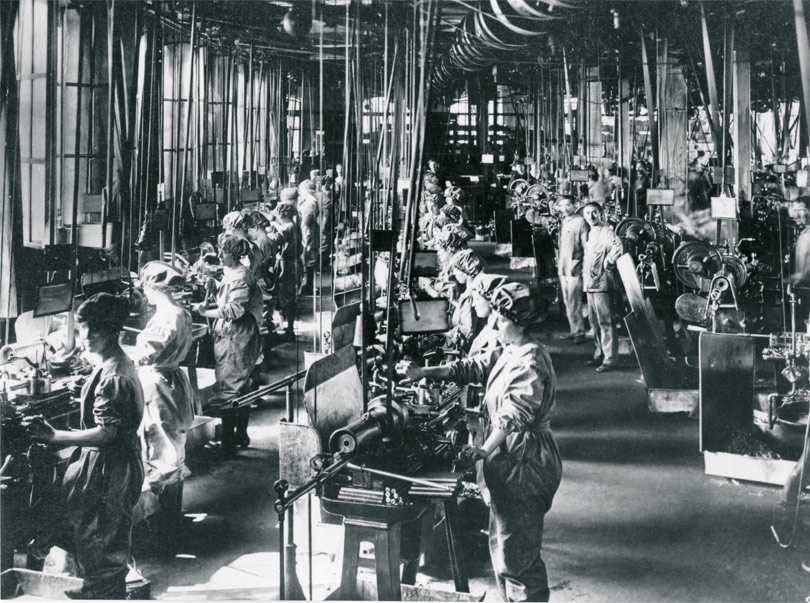
So it is that today has paved the way for a truly new psychology. One feels that this war has given rise to such a great cost in blood, in moral pain, in financial resources, that no territorial conquest, no realization of ancient ideals is enough to justify the cost even remotely. And at the same time, in each State, the humble classes that have made and continue to make such a substantial contribution to the struggle and to the resistance, have matured so quickly and feel with special acuteness an understandable impatience with all that legislation which, gradually, in more or less evident forms, in many countries of the European continent have clearly distinguished the government of the rich from the interests of the poor. It would be a grave error to imagine that, once the bloody parenthesis of the war has closed, things could pick up where they left off at the same pace and in the same political and economic context that reigned before 1914. The less-advantaged classes have felt and experienced the importance of their function in the conflict: they have realized that in the trenches, in the factories and in the fields, their work is indeed essential to the functioning of public affairs; having shared the danger, they have developed a more accurate view of their own dignity, they have become accustomed to looking their masters in the eyes as equals and tomorrow they will want to participate more fully in the joys of life and in their country’s politics.
Giovanni Agnelli and Attilio Cabiati,
Federazione europea o Lega delle Nazioni?, 1918
The capitalist Agnelli is a firm believer in perpetual peace. Convinced and keen. A great idea has conquered his conscience. Can a man of action, an achiever, a creator, a demiurge of the stature of Giovanni Agnelli, let great ideas molder in the attics of conscience?
Antonio Gramsci, in “Avanti!”, 5 February 1919
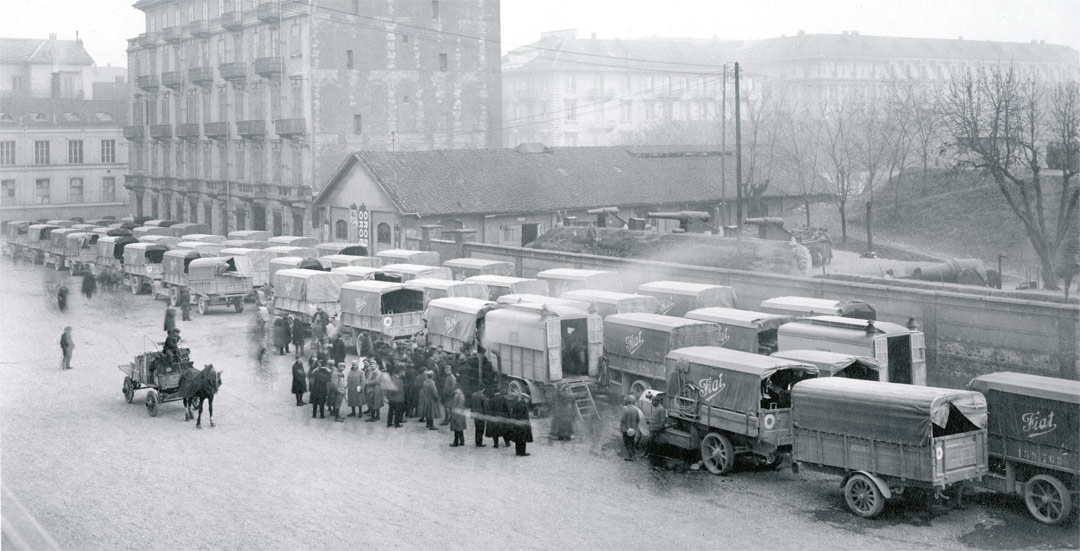
I have a deep admiration for these men: they are the rulers of our age, kings – but much stronger kings, much more useful kings than those of other ages, or even those of our own. They rip the oblivious, resistant masses out of their quiet, supine indolence in the countryside, and throw them into the white-hot crucible of civilization.
[…] Very well: Agnelli builds the factories, and the workers inevitably become socialists.
Antonio Gramsci, Piazza della Pace
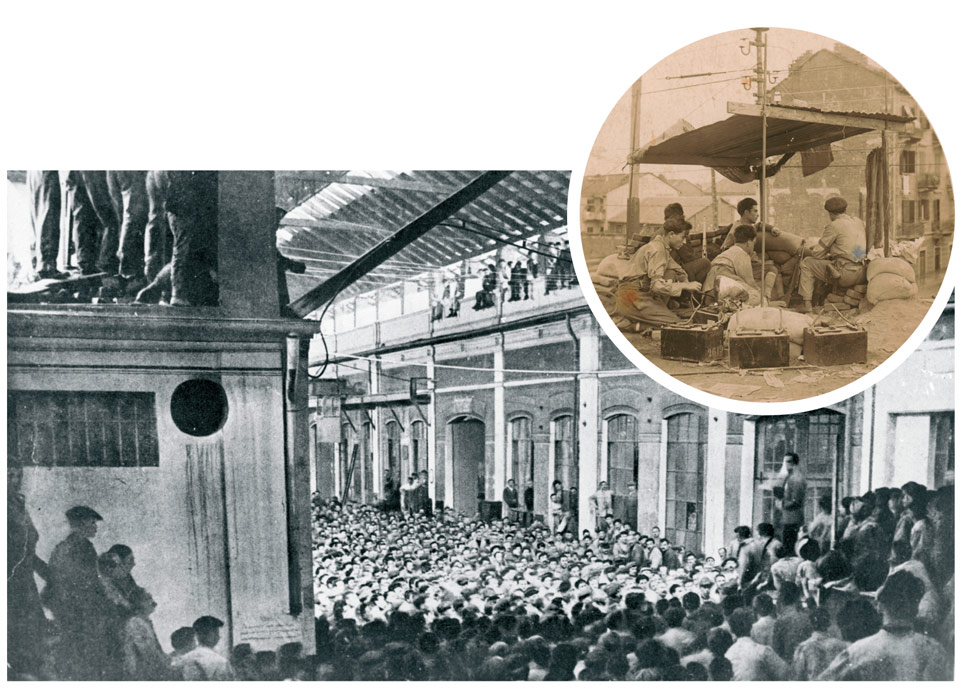
For what I have seen during my short stay in the factory I can state that everything is in order and kept perfectly clean. In my office instead of the portrait of the King I found a portrait of Lenin with long hair and moustaches, hammer and sickle on the sides. […] a lot of unrest around. Some of them would like to put a couple of guardian angels on the side of the industrialist to control all his moves. If anything like that would happen it would not be control but a deprivation of freedom and that would prevent the entrepreneur from doing anything at all.
Giovanni Agnelli al termine del mese di occupazione
delle fabbriche che segnò il culmine del “biennio rosso” 1919-1920,
“La Stampa”, 1° ottobre 1920
